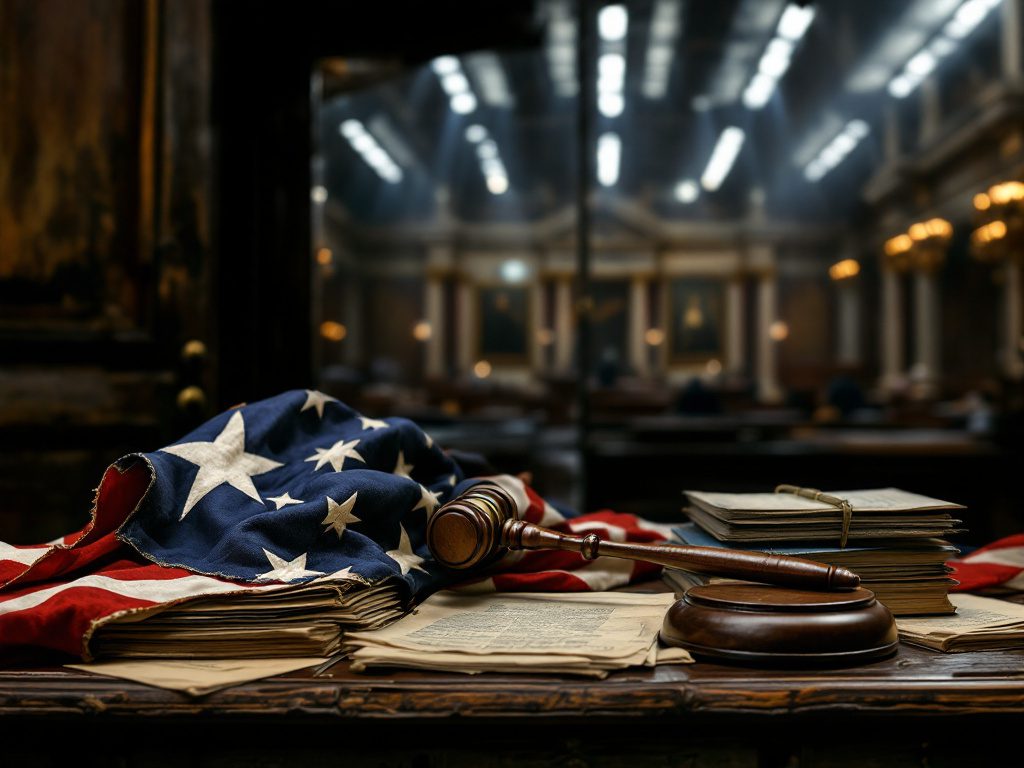History Repeats: Presidential Power Versus the Rule of Law
Standing in the shadow of the Supreme Court, the Trump administration’s refusal to comply with a direct judicial order is more than a bureaucratic power struggle—it’s a stress test for American democracy itself. When the Court demanded that the administration “facilitate” the return of Salvadoran national Kilmar Abrego Garcia, mistakenly deported to El Salvador, President Trump made his position clear in a national interview: he would not organize Garcia’s return, even when pressed by ABC News’ Terry Moran. Trump’s retort? He was simply following the law, despite the Supreme Court’s unambiguous edict to do otherwise.
This standoff isn’t just about one man or one deportation. It’s a vivid flashpoint in the long-running drama over executive power. Context matters: in 1832, President Andrew Jackson famously thumbed his nose at the Supreme Court’s ruling in Worcester v. Georgia, essentially daring the judiciary to enforce its will. As described by legal historian Akhil Reed Amar, this move set an ominous precedent, revealing the limitations of judicial power when presidents refuse to play by the rules. Now, nearly two centuries later, the nation witnesses an echo of that crisis.
According to The South Dakota Standard, Trump’s open defiance, echoed by then-Attorney General Pam Bondi, leaves critics alarmed that Jackson might not be the last president to simply ignore the courts. The difference today is stark: the machinery of American government is far more complex, and the implications for ordinary citizens—especially immigrants and marginalized communities—are far more direct.
The Constitutional Crisis: Checks, Balances, and Brazen Defiance
The legal saga surrounding Garcia has wound its way through the district court, up to the Fourth Circuit Court of Appeals, and back under the national spotlight. The Fourth Circuit did not equivocate: the government’s request for an emergency stay was “both extraordinary and premature,” and it warned that the administration’s claim—that it can unilaterally detain and exile residents in foreign prisons without due process—flies in the face of fundamental rights.
How did we get here? The Trump administration not only failed to abide by a court order, it went further, locking away deported individuals like Garcia in El Salvador’s notorious prisons. The U.S. is even paying the Salvadoran government for this arrangement, prompting constitutional scholars to raise alarm bells over potential Eighth Amendment violations prohibiting cruel and unusual punishment.
Yet what happens when contempt charges run into political realities? Under the Judiciary Act of 1831, the Supreme Court can, in theory, hold officials in contempt. U.S. Marshals are tasked with enforcing such orders—but what if those Marshals report to Attorney General Pam Bondi, herself among the defiant? The risk is obvious: if the executive branch is unwilling to police itself, the courts’ authority risks becoming little more than words on paper.
“A president who shrugs off judicial orders is not just testing the Constitution—he is testing whether the American experiment can enforce even its most basic rules of justice.”
At the core of the debate is a fundamental clash over who defines—and enforces—the law. Trump has publicly asserted, in court and in the media, that aspects of his presidential power, including decisions on deportation and even sweeping tariffs, are outside the scope of judicial review. The Justice Department has argued, in trade court, that judges lack authority to question national emergency declarations, essentially elevating the executive branch to the throne of unchecked discretion. The consequences extend well beyond Garcia’s fate; they point toward a future in which executive fiat, unchecked by courts, would render the very concept of the rule of law hollow.
Democracy at a Crossroads: The Stakes for the Future
What distinguishes a healthy democracy from a failing one isn’t the absence of conflict, but the willingness of those in power to accept institutional checks and abide by the rules of the game—even when it’s uncomfortable, politically unpalatable, or personally costly. Nations slide toward authoritarianism not necessarily through coups or revolutions, but through the slow corrosion of norms and systematic disregard for constitutional boundaries.
Legal experts from Georgetown and Yale have weighed in, cautioning that failure to enforce court orders sends a chilling message: if the president can ignore the judiciary, what limits remain? As John Yoo, a former Justice Department official and devout conservative, has observed, “If presidents can pick and choose which Supreme Court rulings to ignore, the court cannot serve as a check on executive power—period.” This is not only a legal but a moral crisis—one that undermines public faith in the fairness and resilience of America’s most basic institutions.
The fallout is already being felt well beyond DC. Beyond the legal wrangling, immigrant communities are watching this saga with palpable fear, knowing that a single missed signature or bureaucratic error could land them in indefinite exile, with no real prospect of redress—even when the courts say otherwise. Civil rights groups have pointed to the Garcia case as proof that due process is not a partisan luxury, but a constitutional imperative.
The Trump administration’s gamble—that neither the public nor the courts would have the appetite or ability to force compliance—remains a dangerous one. If history has taught us anything, it’s that democracy’s most vulnerable moment arrives not with a bang, but with the slow, unnoticed normalization of lawlessness at the very top. To accept that the president may simply opt out of the rules whenever it suits him is to accept the end of meaningful constitutional order.
American democracy faces a real test of character and commitment, one that will define the balance of power for generations. This is not just about Garcia, or about Trump. It’s about whether the law truly applies to everyone—especially those who wield the most power.

